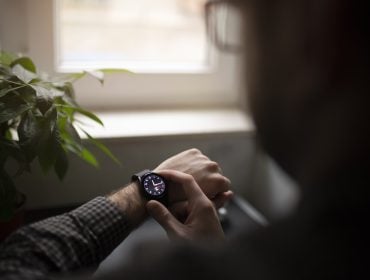When Swiping Right Goes Left: Are Dating Apps to Blame for STDs?
Social media has taken the online dating game to the next level with popular apps like Tinder and Grindr. Finger-happy singles are able to find their perfect match with just one swipe right or by scrolling through a list of eligible men or women in their area. Although many cases have proven successful when finding a mate, others have found themselves in compromising sexual situations that have led to the increasing spread of STIs and STDs.
Study finds online dating apps contributed to STD cases

In a study performed by researchers for the Los Angeles LGBT Center between 2011 and 2013, a total of 7,184 gay or bi-curious men were tested for sexually transmitted infections. Additionally, the subjects were asked to provide information on their drug use and social networking methods to find potential sex partners.
Of those tested, results concluded that 34 percent met sexual partners in person only; 30 percent used a combination of person to person and online dating; 36 percent used only apps or a combination of apps and other methods.
Those who participated in casual sex through online dating apps had 25 percent greater incidence of gonorrhea and 37 percent more incidence of chlamydia compared to those who met their mates in bars, clubs, at the gym or on the street. Fortunately, the research determined use of the apps had no effect on rates of HIV and syphilis.
The majority of people who use the social app are white or Asian, college-educated and under the age of 40. Furthermore, researchers found that men who used these apps were more likely to engage in recreational drug use.
“[These sites] boost the chances of anonymous riskier encounters and getting a sexually transmitted infection,” explained researchers in a paper published in the journal Sexually Transmitted Infections.
Casual, unprotected sex increases STI risks for gay and bisexual men
Secure and Confidential
STD testing services
The fastest results possbile - available in 1 to 2 days
According to Matt Beymer, researcher and epidemiologist at the Los Angeles LGBT Center, using the smartphone apps won’t guarantee you’ll get infected with an STI, but because these apps make meeting sexual partners more efficient, they could also have “the unintended effect” of creating a network of individuals that are at higher risk to contract STIs.
“As technology has benefits, it also has certain risks. We want to educate gay and bisexual men about the potential risks that they may face with these apps,” said Beymer.
Grindr responds to STD allegations
In response to the backlash surrounding the STD cases, Grindr stated the brand, “is highly committed to promoting safe sex within the community and strongly encourages our users to engage in safe sex practices, get tested and know their HIV status.”
Sexual health experts agree that these apps contribute to the rise in casual, unprotected sex with near-strangers with little to no consideration of the person’s sexual health status
Grinder had 2.5 million new users in 2012 and had 6 million new users in 2013.
Have you used Tinder or Grindr? What are your thoughts surrounding the online dating controversy? Share it with us in the comments section!
Medically Reviewed by J. Frank Martin JR., MD on September 11, 2023
Secure and Confidential
STD testing services
The fastest results possbile - available in 1 to 2 days

Tagged
Categorized As
Author: Nick Corlis
Nick Corlis is a writer, marketer, and designer. He graduated from Texas State University in San Marcos, Texas, with a degree in Digital Communications. Nick is proud to be able to help eliminate the stigma of STD testing through his writing and is always trying to advocate the importance of your sexual health. Before STDcheck, his favorite way to develop his writing skills was by accepting various writing jobs in college and maintaining multiple blogs. Nick wears many hats here at STDcheck, but specifically enjoys writing accurate, well-researched content that is not only informative and relatable but sometimes also contains memes. When not writing, Nick likes to race cars and go-karts, eat Japanese food, and play games on his computer.




